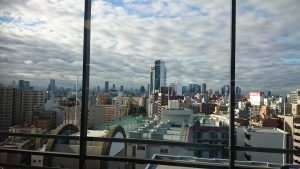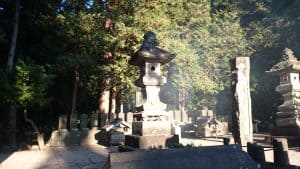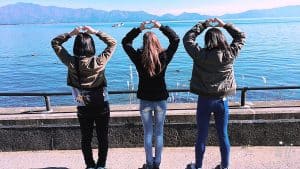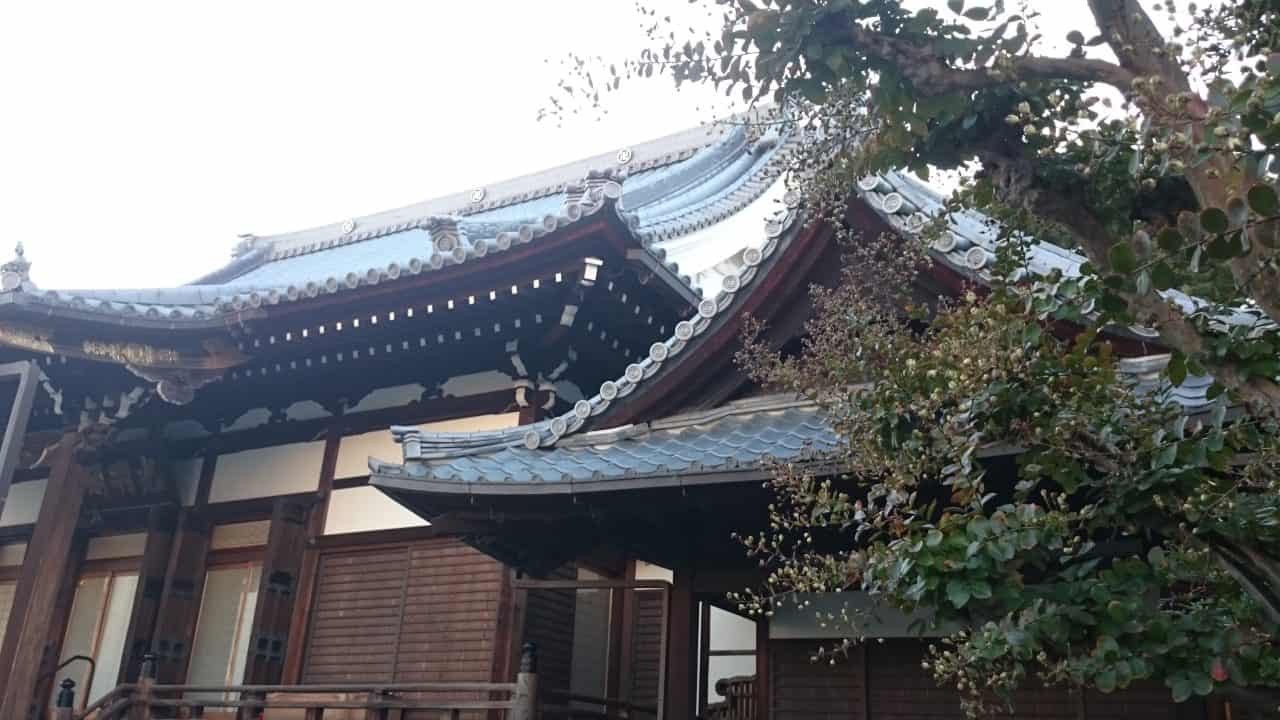Japonia może być daleko, ale na szczęście, obecnie istnieje więcej możliwości aby się do niej zbliżyć. Klasyczne kursy, to programy wymiany na studiach, wakacje robocze, a nawet tradycyjna wiza pracownicza. Jednakże, chcemy przedstawić program, który może być mniej znany, a jeszcze mniej osób ma możliwość wzięcia w nim udziału.
Evi spędziła miesiąc w Japonii, kiedy była uczennicą liceum w 2016 roku; ten artykuł jest oparty na jej doświadczeniach. Uczyła się japońskiego z prywatnym korepetytorem, ale nie zdała jeszcze egzaminu JLPT N3, gdy wyjechała do Japonii.
The circumstances
Competition

Pojechałam do Japonii w ramach konkursu Japońskiego Ministerstwa Edukacji (MEXT). Na jednodniowym konkursie musiałam udowodnić, że jestem w stanie reprezentować Węgry za granicą. W konkursie mógł wziąć udział każdy obywatel Węgier poniżej 18 roku życia, a my mieliśmy po dwanaście lat. Tylko sześć osób się zakwalifikowało. Program był organizowany przez AFS, międzynarodową organizację zrzeszającą studentów z wymiany i musieliśmy wykonać różne zadania indywidualne oraz grupowe. Były zadania z podstawowej wiedzy, kiedy oceniano, jak dobrze znamy Węgry, w tym także, czy możemy wymienić pięciu olimpijczyków i tak dalej. Musieliśmy też rozmawiać po japońsku, na przykład musieliśmy powiedzieć, dlaczego chcemy polecieć do Japonii. Z zadań grupowych bardzo dobrze pamiętam, kiedy musieliśmy zaplanować wycieczkę, która miała ocenić nasze uprzedzenia. Musieliśmy wybrać trzech z innej grupy stereotypowych ludzi, z którymi chcemy podróżować, więc między innymi musieliśmy zdecydować, czy chcemy podróżować z muzułmaninem, który nosi zapałki w butach. Po zróżnicowanych zadaniach zakwalifikowało się sześć osób. Poza biletem lotniczym wszystko zapłacił MEXT.
Gdzie, na jak długo?
Spędziłam miesiąc w prefekturze Fukushima, w mieście Kouriyama.
Po naszym wyjeździe program odbywał się przez pięć dni w Osace, gdzie zaopiekował się nami AFS. Mieli całkiem surowe reguły.
Nie mogliśmy korzystać z naszych telefonów, nie można było wyjść z hotelu, trzeba było jeść wszystko, co nam dali, więc było tak, jakby próbowali przygotować nas na to, co nadchodzi.
Przybyli studenci z całego świata, więc trzeba było przyzwyczaić się do nowych okoliczności.
Zakwaterowanie

Byliśmy zakwaterowani u rodzin goszczących, po japońsku ホームステイ. Spędziłam dwa tygodnie w dwóch różnych rodzinach.. Jedna z nich była już doświadczona, wielokrotnie przyjmowali studentów z wymiany, a rodzina składała się z modelu klasycznego; ojciec, matka i dwoje dzieci. Organizowali programy, wspólne wycieczki i widać było, że są do takich rzeczy przyzwyczajeni. Natomiast druga rodzina nigdy wcześniej tego nie robiła, byłam u nich pierwszym cudzoziemcem. Ojciec był żołnierzem, przez większość czasu przebywał poza domem. Matka prowadziła gospodarstwo domowe z trójką dzieci. Nawet beze mnie było im ciężko, a czasami nie mogli nic ze mną zrobić, więc po prostu kazali mi usiąść przed telewizorem. Oczywiście próbowali też zabierać mnie na wycieczki.
Życie szkolne
Programy
Od poniedziałku do piątku chodziliśmy do szkoły, tak jak japońscy uczniowie. Mieliśmy pełny harmonogram od 8:25 do 16:30. Poranek zaczynał się od samodzielnej nauki, potem były zajęcia, a po lekcjach sprzątanie. Uczniowie japońskich szkół sprzątają klasy po lekcjach, a my, obcokrajowcy, też braliśmy w tym udział. Drugim elementem życia studenckiego w Japonii jest działalność klubowa (部活動). Ja wybrałam taniec hula raz lub dwa razy w tygodniu, ale inni, na przykład drużyna piłki nożnej, częściej mieli spotkania. Taniec hula wybrało około 20-30 uczniów.
Inni obcokrajowcy
Wszystkich sześciu Węgrów, którzy zakwalifikowali się do konkursu, trafiło do różnych szkół, jednak w mojej szkole było pięciu innych obcokrajowców. Wśród nich był chłopak, który spędził rok w Kouriyamie, w ramach innego programu. Cudzoziemcy chodzili do różnych klas, ale wszyscy byli tego samego rocznika szkolnego. Byłam w tym czasie w dwunastej klasie na Węgrzech, a mimo to dotarłam do dziesiątej klasy (pierwsza klasa w japońskim liceum). Nawiasem mówiąc, w każdej klasie było pięć roczników, więc obcokrajowcy mogli być dobrze porozmieszczani.
Czas wolny
 Poza zajęciami miałam mało wolnego czasu. Zwykle musiałam czekać jedną, do dwóch godzin zanim mogłam wrócić do domu, ponieważ nie można było opuścić szkoły bez mojego gospodarza. Czekając, rozmawiałam z moimi kolegami z klasy, którzy byli ze mną bardzo inkluzywni. Nigdy nie byli zimni ani zdystansowani, zawsze mnie przytulali, zapraszali do swojego stolika w przerwie na lunch, nigdy nie wykluczali mnie z niczego. Oczywiście przyzwyczaili się już do obcokrajowców. Chłopcy byli o wiele bardziej nieśmiali, ledwo z nimi rozmawiałam. Tak naprawdę nie spędzałam z nimi czasu poza szkołą, rodziny były bardzo surowe, ale czasami chodziłam do centrum handlowego z moją gospodynią i jej koleżankami z klasy. Wtedy robiliśmy to, co zwykle robią japońskie nastolatki, McDonald i purikura (fotobudka). Chociaż byłam w tym samym wieku co mój gospodarz, chodziliśmy do różnych klas w tej samej szkole. Pewnie dlatego, że byłam obcokrajowcem. Byłoby mi zbyt ciężko zrozumieć materiał do ich zajęć, dlatego poszłam do pierwszej klasy.
Poza zajęciami miałam mało wolnego czasu. Zwykle musiałam czekać jedną, do dwóch godzin zanim mogłam wrócić do domu, ponieważ nie można było opuścić szkoły bez mojego gospodarza. Czekając, rozmawiałam z moimi kolegami z klasy, którzy byli ze mną bardzo inkluzywni. Nigdy nie byli zimni ani zdystansowani, zawsze mnie przytulali, zapraszali do swojego stolika w przerwie na lunch, nigdy nie wykluczali mnie z niczego. Oczywiście przyzwyczaili się już do obcokrajowców. Chłopcy byli o wiele bardziej nieśmiali, ledwo z nimi rozmawiałam. Tak naprawdę nie spędzałam z nimi czasu poza szkołą, rodziny były bardzo surowe, ale czasami chodziłam do centrum handlowego z moją gospodynią i jej koleżankami z klasy. Wtedy robiliśmy to, co zwykle robią japońskie nastolatki, McDonald i purikura (fotobudka). Chociaż byłam w tym samym wieku co mój gospodarz, chodziliśmy do różnych klas w tej samej szkole. Pewnie dlatego, że byłam obcokrajowcem. Byłoby mi zbyt ciężko zrozumieć materiał do ich zajęć, dlatego poszłam do pierwszej klasy.
Lekcje
Trudności w porozumiewaniu się.
Kiedy poleciałam do Japonii, nie miałam jeszcze zdanego N3.
Mogłam dość łatwo komunikować się z innymi, ale muszę przyznać, że mój mózg bardzo szybko się męczył, ponieważ musiałam mówić po japońsku przez cały dzień, do czego nie byłam przyzwyczajona. Były też łatwiejsze zajęcia, na przykład rozumiałam biologię i historię, ale literatura była dużym wyzwaniem. Nie wspominając o matmie. Nie tylko bariera językowa utrudniała zrozumienie, ale Japończycy uczą się zupełnie innego systemu jako Europejczycy.
Testy
W zasadzie nie musiałam stresować się pobytem, nie trzeba było pisać testu ani niczego poza tym. Były krótkie testy tylko w języku angielskim, ale dostałam naklejkę bez względu na to, ile punktów uzyskałam.
Atmosfera
 Atmosfera w klasie zależała od nauczyciela. Byli tacy, którzy przyszli do klasy, wygłosili wykład i natychmiast zniknęli, ale pozostali byli dość przyjaźni. Wszyscy zjawiali się naprawdę punktualnie, szanowali dzwonek, ale to nie znaczy, że było jak w wojsku. Niektóre lekcje prowadzone przez nauczycieli były tak naprawdę zabawne i pomimo iż nauczyciele są szanowani w Japonii, niektórzy z nich byli bardziej przyjaźni niż ci na Węgrzech. Byli empatyczni oraz cierpliwi. Jeśli uczeń nie znał odpowiedzi, mówili tylko, że nie ma sprawy, znajomi mu to podpowiedzą. Na zajęciach nie zabrakło radości, chociażby, gdy nauczycielka historii zademonstrowała marsz rzymskich żołnierzy. Szacunek nie oznacza, że nie możesz mieć dobrych relacji z nauczycielami, a jednocześnie uczniowie też nie naruszali zasad.
Atmosfera w klasie zależała od nauczyciela. Byli tacy, którzy przyszli do klasy, wygłosili wykład i natychmiast zniknęli, ale pozostali byli dość przyjaźni. Wszyscy zjawiali się naprawdę punktualnie, szanowali dzwonek, ale to nie znaczy, że było jak w wojsku. Niektóre lekcje prowadzone przez nauczycieli były tak naprawdę zabawne i pomimo iż nauczyciele są szanowani w Japonii, niektórzy z nich byli bardziej przyjaźni niż ci na Węgrzech. Byli empatyczni oraz cierpliwi. Jeśli uczeń nie znał odpowiedzi, mówili tylko, że nie ma sprawy, znajomi mu to podpowiedzą. Na zajęciach nie zabrakło radości, chociażby, gdy nauczycielka historii zademonstrowała marsz rzymskich żołnierzy. Szacunek nie oznacza, że nie możesz mieć dobrych relacji z nauczycielami, a jednocześnie uczniowie też nie naruszali zasad.
Zasady
Zasady były znacznie bardziej rygorystyczne w porównaniu z Węgrami. Uczniowie nie mogą farbować włosów, nosić makijażu, kolczyków oraz krótkich spódniczek. Cudzoziemcy też musieli nosić mundury. Co ciekawe, podczas zajęć mówienie było zabronione, ale spanie już nie. Byłeś w porządku, o ile nie przeszkadzałeś innym w klasie.
Podsumowanie
Ten miesiąc był jednym z najlepszych doświadczeń w moim życiu. Wiele się nauczyłam o japońskiej kulturze i zachowaniu Japończyków. To bardzo uprzejmy naród; dba o swoje otoczenie, szanuje przyrodę, starszych oraz innych. Świetnie się bawiłam, a moje umiejętności językowe bardzo się poprawiły, po powrocie do domu zdałam egzamin N3.


